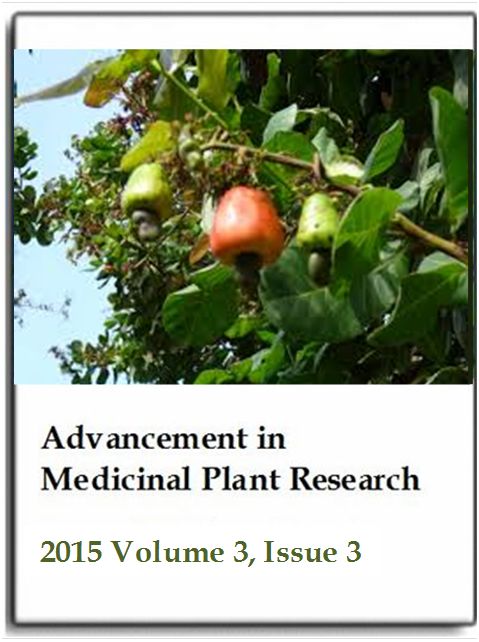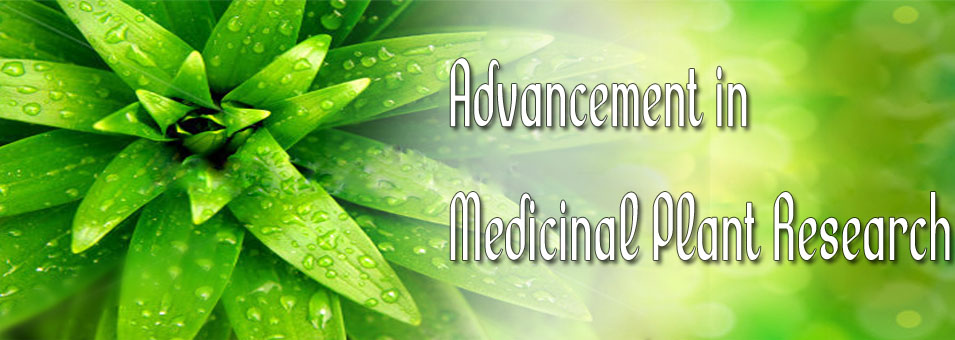Administration of cashew extracts in the treatment of some infections and diseases
Abeer Sarwar, Tamanna Binte Huq, Tasnia Malik and Biplab Kumar DasAdvancement in Medicinal Plant Research
Published: July 3 2015
Volume 3, Issue 3
Pages 75-86
Abstract
The cashew, Anacardium occidentale (L), has been reported for its usage in many life applications. Some of the medicinal uses of cashew include the antimicrobial effect of extracts of the leaves, apple, stem and the nut shell oil against many microorganisms including Escherichia coli, Candida albicans, Ascaridia galli and Leishmania sp. The anti-microbial activities of cashew extract involve the anti-bacterial, antifungal, anti-helminthics, anti-protozoan and anti-viral. The phytochemicals present in cashew extracts such as anacardic acid, flavonoid and tannins are responsible for the anti-microbial activities of the extract by inactivation of microbial adhesions enzymes and cell envelop transport cells, flavonoids, which are responsible for the inhibition of DNA gyrase thereby inhibiting DNA synthesis; phenolic compounds like anacardic acids, cardols, triterpenoids, methylcardols, xantoprotein and cardanols that are responsible for bacteria cell wall inhibition, by inhibiting the cell wall synthesis in addition to a growing cell and blocking the DNA, RNA and protein pathways. The extracts of cashew have also been used in treating gastro-intestinal tract syndromes such as diarrhea, dysentery, dyspepsia and nausea. Allergies and inflammation syndromes are also managed by administration of extracts from cashew; tannins inhibit the migration of leucocytes to an inflammatory site thereby reducing inflammatory response; on the other hand flavonoids present in extracts of cashew inhibit the cyclo-oxygenase, which is important in the genesis of edema and pain. Cardiovascular diseases are often treated by extract of cashew because of the presence of phenolic compounds that are antioxidant in nature. The endocrine diseases are also being treated by cashew extract as in the case of diabetes mellitus. The presence of saponin, flavonoids, alkaloids, phenols, anacardic acid and tannin had been reported to increase the regeneration rate of the beta cells. The anacardic acid from cashew nut can also inhibit the growth of some cancerous cells, also agathisflavone was shown to be cytotoxic against malignant cell lines. A likely mechanism of action of agathisflavone would be by inhibition of cyclic nucleotide phosphodiesterases (PDEs). This paper discusses the usefulness of cashew in addressing many human medical challenges; without the use of synthesized drugs.
Keywords: Anacardium occidentale L., anacardic acid, cashew, ethanol extract, water extract, flavonoids, tannin.
Full Text PDF
